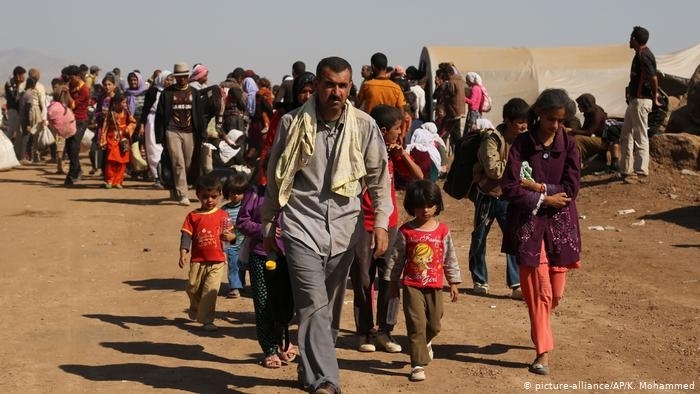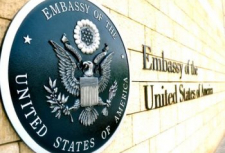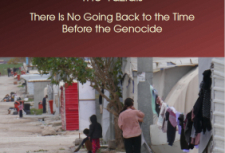Policy Options for Social Integration of Yezidi People in Europe: the Goal of a Society for all

Authors - Olga A. Vorkunova , Samvel Kochoi
“Federalism” or even “confederalism” can be real options to avoid the negative effects of such an eventuality. The flexible and imaginative application of “federalism” could make functional equivalent of the new system. Federalism would reconcile the legitimate impulse of ethnic minorities to preserve their lifestyle, traditions, and territorial integrity with the legitimate right of ethnic groups to preserve their culture, human dignity, and political autonomy. Development cooperation has an important role in promoting the emergence of inclusive, cohesive societies. These are built through policies—formulated by as wide a representation of civil society as possible—that promote equity, citizen participation, and social justice. The ultimate impediment to social integration is the failure to honor all human rights for all. Inclusive societies are based on rights. Rights provide the framework against which people can become full members of society. “Human rights” are about the possibility of being a full member of society. This implies recognition of all rights for all in the development process and tackling the structures of society that result in discrimination and impoverishment. Human rights are economic, social, and cultural, as well as civil and political. They are interdependent and indivisible.
Governments have the responsibility to provide the environment for helping people both recognize and achieve their rights. Rights are the basis on which inclusive societies function. Targeted interventions to assist refugees work better if they are based on rights, because it enables migrants to force the administration to work better. It seems evident that the economic exploitation and psychological exclusion of the informal diaspora communities of migrant workers create an insecure community. As Kinhide Mushakoji notes, “they reproduce a frustrated identity feeling, which is often strengthened by the majority citizens joining in the colonialism of the global governance often taken for granted as sustainable.”[6]
Another growing obstacle to achieving social cohesion in Europe is the sort of fragmentation associated with ethnic, religious, and cultural reactions to the impacts of globalization. These differences were, to a certain extent, muffled during the years of violent conflicts and genocide. A society for all includes associative structures, respect for all human rights and fundamental freedoms, the creation of an environment enabling social integration, and would ensure more equal opportunities for all peoples to resources and social services. All of these examples form the substratum for the creation of institutional reforms ensuring appropriateness of assistance policy prescriptions. This can be explained by the speed of change, as well as deep-rooted cultural and social habits and hybridization of modernism and tradition. We should nevertheless emphasize the fact that we are witnessing the reassessment of the impacts of globalization and regionalization that have occurred in the last few years. It creates space for new ideas and proposals for the refugee welcome program. Multi-ethnic accommodation democracy plays an essential part in setting up partnerships.
Tags:
Policy Options for Social Integration of Yezidi People in Europe: the Goal of a Society for all

Authors - Olga A. Vorkunova , Samvel Kochoi
“Federalism” or even “confederalism” can be real options to avoid the negative effects of such an eventuality. The flexible and imaginative application of “federalism” could make functional equivalent of the new system. Federalism would reconcile the legitimate impulse of ethnic minorities to preserve their lifestyle, traditions, and territorial integrity with the legitimate right of ethnic groups to preserve their culture, human dignity, and political autonomy. Development cooperation has an important role in promoting the emergence of inclusive, cohesive societies. These are built through policies—formulated by as wide a representation of civil society as possible—that promote equity, citizen participation, and social justice. The ultimate impediment to social integration is the failure to honor all human rights for all. Inclusive societies are based on rights. Rights provide the framework against which people can become full members of society. “Human rights” are about the possibility of being a full member of society. This implies recognition of all rights for all in the development process and tackling the structures of society that result in discrimination and impoverishment. Human rights are economic, social, and cultural, as well as civil and political. They are interdependent and indivisible.
Governments have the responsibility to provide the environment for helping people both recognize and achieve their rights. Rights are the basis on which inclusive societies function. Targeted interventions to assist refugees work better if they are based on rights, because it enables migrants to force the administration to work better. It seems evident that the economic exploitation and psychological exclusion of the informal diaspora communities of migrant workers create an insecure community. As Kinhide Mushakoji notes, “they reproduce a frustrated identity feeling, which is often strengthened by the majority citizens joining in the colonialism of the global governance often taken for granted as sustainable.”[6]
Another growing obstacle to achieving social cohesion in Europe is the sort of fragmentation associated with ethnic, religious, and cultural reactions to the impacts of globalization. These differences were, to a certain extent, muffled during the years of violent conflicts and genocide. A society for all includes associative structures, respect for all human rights and fundamental freedoms, the creation of an environment enabling social integration, and would ensure more equal opportunities for all peoples to resources and social services. All of these examples form the substratum for the creation of institutional reforms ensuring appropriateness of assistance policy prescriptions. This can be explained by the speed of change, as well as deep-rooted cultural and social habits and hybridization of modernism and tradition. We should nevertheless emphasize the fact that we are witnessing the reassessment of the impacts of globalization and regionalization that have occurred in the last few years. It creates space for new ideas and proposals for the refugee welcome program. Multi-ethnic accommodation democracy plays an essential part in setting up partnerships.
Tags:

























